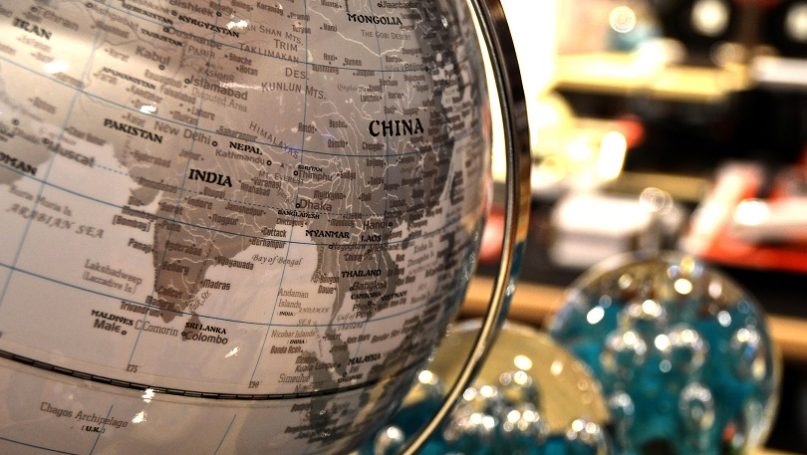The Case of China in South Asia
Ashmita Rana
Download PDF
Nov 14 2022 •
This content was originally written for an undergraduate or Master's program. It is published as part of our mission to showcase peer-leading papers written by students during their studies. This work can be used for background reading and research, but should not be cited as an expert source or used in place of scholarly articles/books.

Picture by PIRO / Pixabay.com
Soft power is a significant attribute for a state that is a great power or that aspires to be one. While hard power is more visible in the international system in the form of military and economic might, it is soft power that often works subtly in the background. Joseph S. Nye defined soft power or the “second face of power” as the ability to get others to want the outcomes one wants using co-option and not coercion” (Nye 2004: 5). Essentially, soft power deals with the ability to shape the preferences of others. In world politics, this can be translated as a state’s ability to shape the international agenda and attract the support of other states without having to threaten them with military force or economic sanctions. Nye pointed out three sources of the soft power of a state—its culture, its political values and its foreign policy (Nye 2004: 11). All these factors determine the attractiveness that a state enjoys in the world, and shapes international politics in ways that even hard power does not. The increasing acknowledgement of the utility of soft power in world politics can be seen in the ways states, especially great powers, have reoriented their international conduct in recent times. Most states today continue to invest in the promotion of their cultures and values. Moreover, these states also more actively seek to justify their actions (whether domestic or international) in a bid to win approval and moral legitimacy in the world.
The rise of China as a great power and its quest to overtake the United States of America is one of the most striking features of the international system in contemporary times. While China has visibly made impressive gains in terms of augmenting its hard power resources, it has also made great efforts in the expansion of its soft power. This paper attempts to present an analysis of China’s notions of soft power, its efforts in increasing its soft power and the success and failure that it encounters in the process. This paper will also seek to analyse the aforementioned concepts using a case study that will revolve around Chinese influence in South Asia.
Ashmita Rana
Download PDF
Nov 14 2022 •
This content was originally written for an undergraduate or Master's program. It is published as part of our mission to showcase peer-leading papers written by students during their studies. This work can be used for background reading and research, but should not be cited as an expert source or used in place of scholarly articles/books.

Picture by PIRO / Pixabay.com
Soft power is a significant attribute for a state that is a great power or that aspires to be one. While hard power is more visible in the international system in the form of military and economic might, it is soft power that often works subtly in the background. Joseph S. Nye defined soft power or the “second face of power” as the ability to get others to want the outcomes one wants using co-option and not coercion” (Nye 2004: 5). Essentially, soft power deals with the ability to shape the preferences of others. In world politics, this can be translated as a state’s ability to shape the international agenda and attract the support of other states without having to threaten them with military force or economic sanctions. Nye pointed out three sources of the soft power of a state—its culture, its political values and its foreign policy (Nye 2004: 11). All these factors determine the attractiveness that a state enjoys in the world, and shapes international politics in ways that even hard power does not. The increasing acknowledgement of the utility of soft power in world politics can be seen in the ways states, especially great powers, have reoriented their international conduct in recent times. Most states today continue to invest in the promotion of their cultures and values. Moreover, these states also more actively seek to justify their actions (whether domestic or international) in a bid to win approval and moral legitimacy in the world.
The rise of China as a great power and its quest to overtake the United States of America is one of the most striking features of the international system in contemporary times. While China has visibly made impressive gains in terms of augmenting its hard power resources, it has also made great efforts in the expansion of its soft power. This paper attempts to present an analysis of China’s notions of soft power, its efforts in increasing its soft power and the success and failure that it encounters in the process. This paper will also seek to analyse the aforementioned concepts using a case study that will revolve around Chinese influence in South Asia.

READ ON
No comments:
Post a Comment